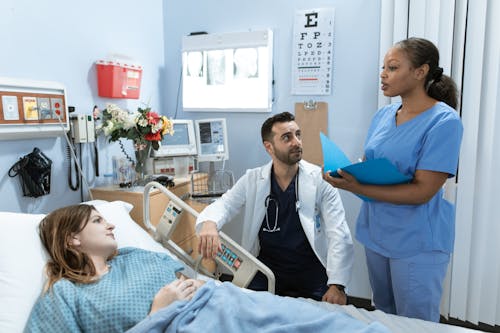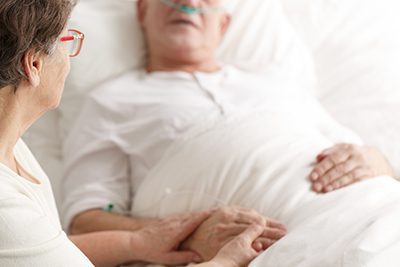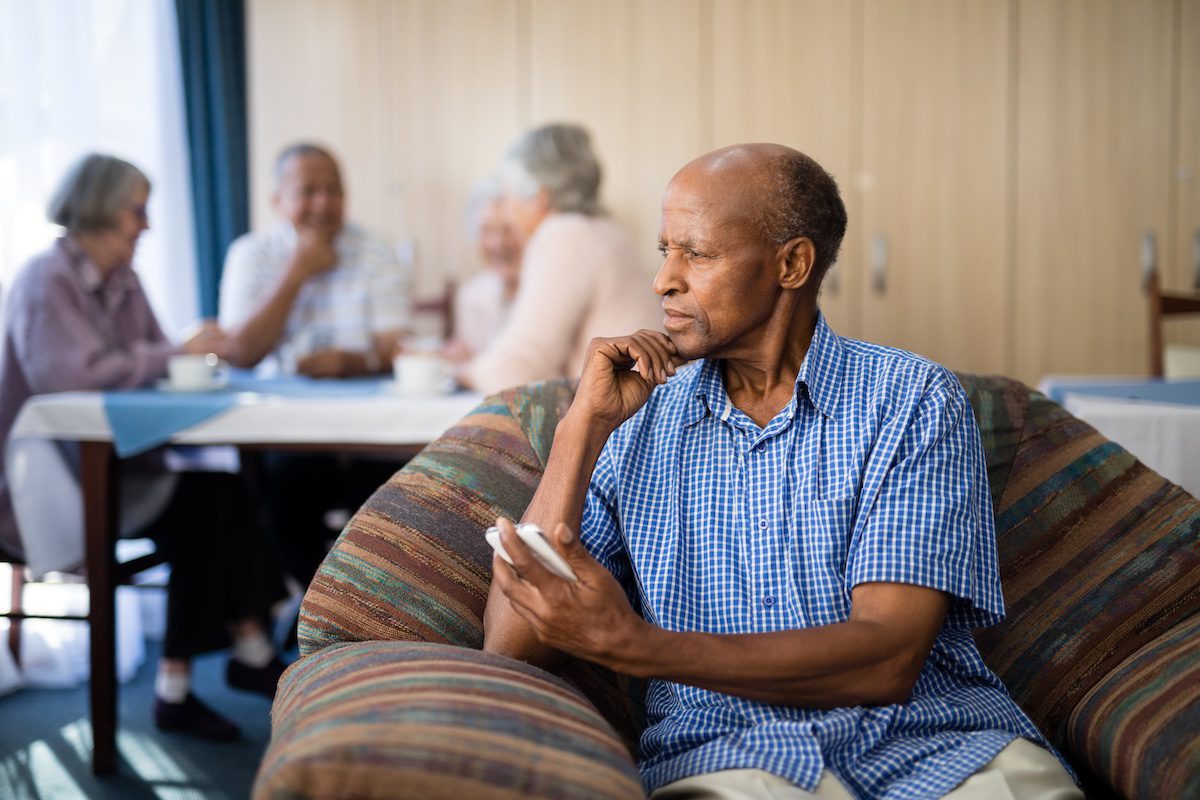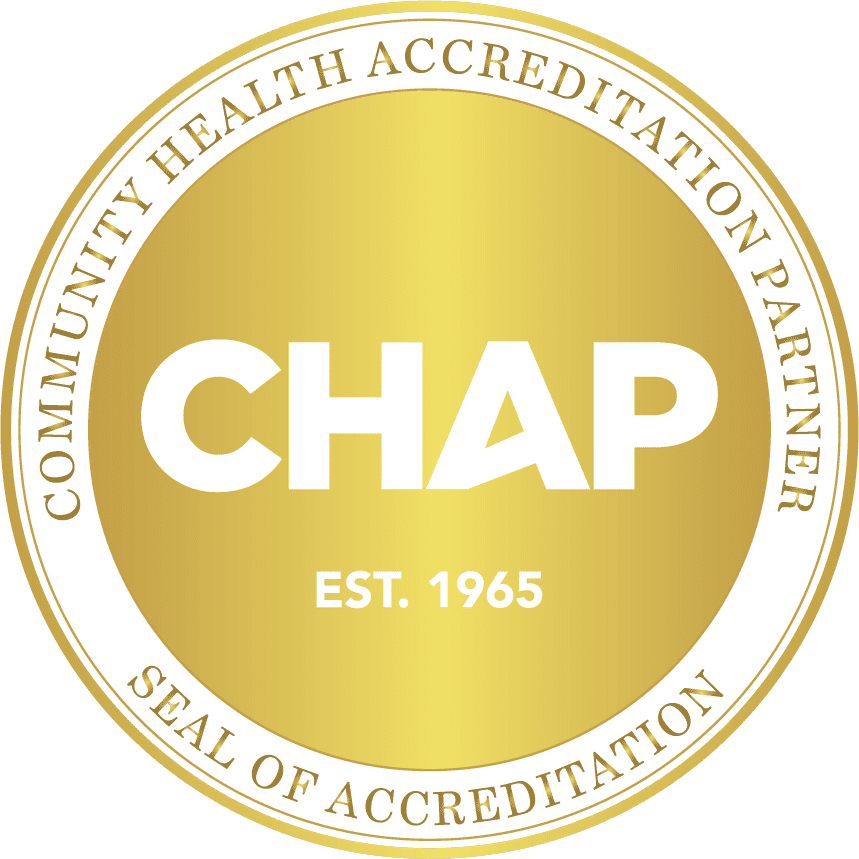The Decision About End Of Life Medication Isn’t Easy
End-of-life medication is a hot topic in the hospice world. Some hospices offer this type of medication to their patients, while others do not. There is no right or wrong answer when it comes to whether or not a hospice recommends end-of-life medication, as each individual case is different. However, there are some general things to keep in mind if you are considering this option for yourself or a loved one.

There Are Different Beliefs About It
Some people believe that end-of-life medication should be used to relieve pain and suffering. Others believe that end-of-life medication should be used to hasten death. And still, others believe that end-of-life medication should be used only as a last resort.
The use of end-of-life medication is a highly personal decision, and there is no right or wrong answer. Ultimately, it is up to each individual to decide what they believe is best for themselves or their loved ones.
What is end-of-life medication?
First and foremost, it is important to understand what end-of-life medication actually is. End-of-life medication refers to any medication that is used to relieve pain and suffering at the end of life. This can include medications that are used to relieve pain, such as opioids, as well as medications that are used to sedate a person who is dying.
This type of medication is typically used to help manage pain and other symptoms that can occur during the dying process. It is important to note that end-of-life medication is not used to hasten death; rather, it is meant to make a person more comfortable during their final days.

What Are The Different Beliefs About End-of-life Medication?
There are three main beliefs about end-of-life medication:
- End-of-life medication should be used to relieve pain and suffering.
- End-of-life medication should be used to hasten death.
- End-of-life medication should be used only as a last resort.
Each belief about end-of-life medication has different implications.
If you believe that end-of-life medication should be used to relieve pain and suffering, you may be more likely to request medication when you are nearing the end of life. This can help you to avoid unnecessary suffering.
If you believe that end-of-life medication should be used to hasten death, you may be more likely to request medication sooner rather than later. This can help you to die with dignity and avoid a prolonged and difficult death.
If you believe that end-of-life medication should be used only as a last resort, you may want to wait until all other options have been exhausted before requesting medication. This can help you to make sure that your decision is well thought out and that you are truly ready to die.
If you are considering end-of-life medication, it is important to talk to your hospice care team about all of your options. They will be able to help you understand the potential risks and benefits of this type of medication and can answer any questions you may have. Once you have all the information you need, you can then make an informed decision about whether or not end-of-life medication is right for you or your loved one.
There are many potential benefits of end-of-life medication.
There are many benefits to end-of-life medication, both for the person taking it and for their loved ones. It can help to ease the pain and suffering of a terminal illness, and it can give the person control over how and when they die.
For many people, end-of-life medication is a peaceful way to die. It can allow them to die on their own terms, in their own time. And it can give them the opportunity to say goodbye to their loved ones in a way that is meaningful to them.
End-of-life medication can also help to ease the financial burden on loved ones. funeral costs can be expensive, and end-of-life medication can help to offset some of these costs.
There are many potential risks of end-of-life medication.
End-of-life medication can be a vital tool for managing pain and other symptoms in terminally ill patients. However, there are also risks associated with its use.
There is the potential for abuse and misuse of end-of-life medication. Patients may be tempted to take more medication than prescribed in order to hasten their death. Family members or caregivers may also abuse end-of-life medication in order to relieve their own suffering.
End-of-life medication can also interact with other medications that a patient is taking. This can lead to serious side effects or even death.
Patients and their families should be aware of the risks associated with end-of-life medication before making the decision to use it. They should also be sure to follow the instructions of their healthcare provider carefully.
How do I make a decision about end-of-life medication?
Making the decision to end your life is never easy. There are many factors to consider, and it is important to make sure that you are making the best decision for yourself and your loved ones. One of the most important factors to consider is whether or not you want to take end-of-life medication. This medication can help you to pass away peacefully and with as little pain as possible. However, it is important to make sure that you are fully informed about the risks and benefits of taking this medication before making a decision. Here are some things to keep in mind when making a decision about end-of-life medication:
1. Consult with your doctor: Your doctor will be able to tell you whether or not taking end-of-life medication is the best option for you. They will be able to answer any questions you have and help you to understand the risks and benefits of taking this medication.
2. Consider your pain tolerance: One of the main reasons people take end-of-life medication is to avoid pain. If you are concerned about the amount of pain you may experience during the dying process, taking this medication may be the best option for you.
3. Think about your loved ones: Another factor to consider is how your decision will affect your loved ones. If you are worried about leaving your loved ones behind, taking end-of-life medication can help to ease their pain.
4. Make sure you are fully informed: It is important to make sure that you are fully informed about the risks and benefits of taking end-of-life medication before making a decision. Be sure to talk to your doctor and loved ones about your decision so that you can make the best choice for yourself.

So, Is It Ethical?
There are many different opinions on whether or not end-of-life care is ethical. It is a difficult question with no easy answer. In some cases, using end-of-life medication may be the best option for a terminally ill patient. However, there are also ethical concerns that need to be considered.
Some people believe that it is morally wrong to hasten death, even if the person is suffering from a terminal illness. They argue that everyone has a right to live out their natural life, even if it means enduring pain and suffering. Others believe that quality of life is more important than quantity and that terminally ill patients should be able to make the decision to end their lives if they are suffering.
There are also practical considerations to take into account. In some cases, end-of-life medication may not be readily available. And even if it is available, there may be concerns about its effectiveness.
Ultimately, the decision about whether or not to use end-of-life medication is a personal one. There is no right or wrong answer, but it is important to carefully consider all of the ethical and practical implications before making a decision. Make sure to do what is right for you.







